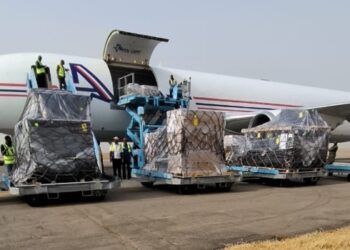Dr Akinwumi Adesina, President of the African Development Bank (AfDB), has issued a stark warning about Nigeria’s economic trajectory, stressing the urgent need for industrialisation to avert further decline and uplift millions from poverty by 2050.
Speaking at the 20th anniversary dinner of Chapel Hill Denham in Lagos on Thursday, Adesina highlighted that Nigeria’s current GDP per capita stands at $824, a significant drop from $1,847 in 1960, indicating a regression in economic well-being over the decades.
“Nigeria must stop seeing underdevelopment as normal. It must rise to lead Africa,” Adesina asserted, pointing out that despite being Africa’s largest economy, Nigeria’s slow growth and high poverty levels pose a significant challenge to the continent’s development.
Learning from Global Examples
Adesina drew comparisons with countries like South Korea, which had a lower GDP per capita than Nigeria in 1960 but has since transformed into a global industrial leader with a per capita income exceeding $36,000.
He criticised Nigeria’s failure to industrialise, noting that the country lags behind Malaysia and Vietnam in manufacturing exports and value addition.
Strategic Investments for Transformation
To reverse this trend, Adesina advocated for massive investments in power, infrastructure, science, and agriculture, supported by private capital and efficient governance.
He highlighted the AfDB-led Special Agro-Industrial Processing Zones (SAPZ) project as a potential game-changer for Nigeria’s agricultural transformation. The bank and its partners have committed $3.4 billion to support the establishment of these zones across all 36 states and the Federal Capital Territory.
The SAPZs are designed to attract agribusinesses to rural areas with high production potential, adding value to raw produce and generating jobs. Adesina emphasised that these zones would help diversify Nigeria’s economy, reduce food imports, and position the country as a global food powerhouse.
Call to Action
Adesina urged the government to continue supporting policies that attract private investment in agriculture and rural development. “Reimagining Nigeria’s future means making agriculture a business, not a way of survival,” he stated.
He concluded by stressing the need for Nigeria to adopt bold, structural reforms that go beyond cosmetic policy changes, emphasising the importance of strong institutions, policy consistency, and good governance to ensure the success of these initiatives.



































